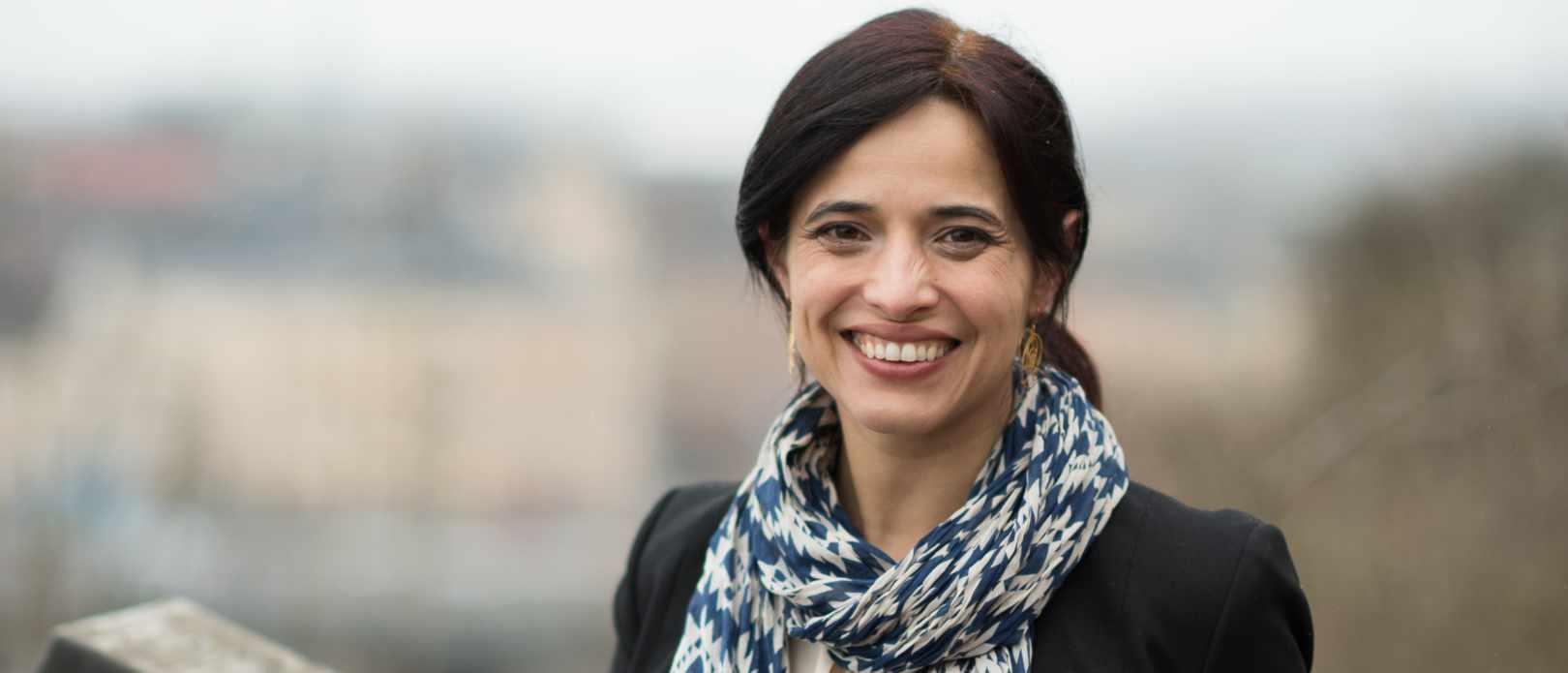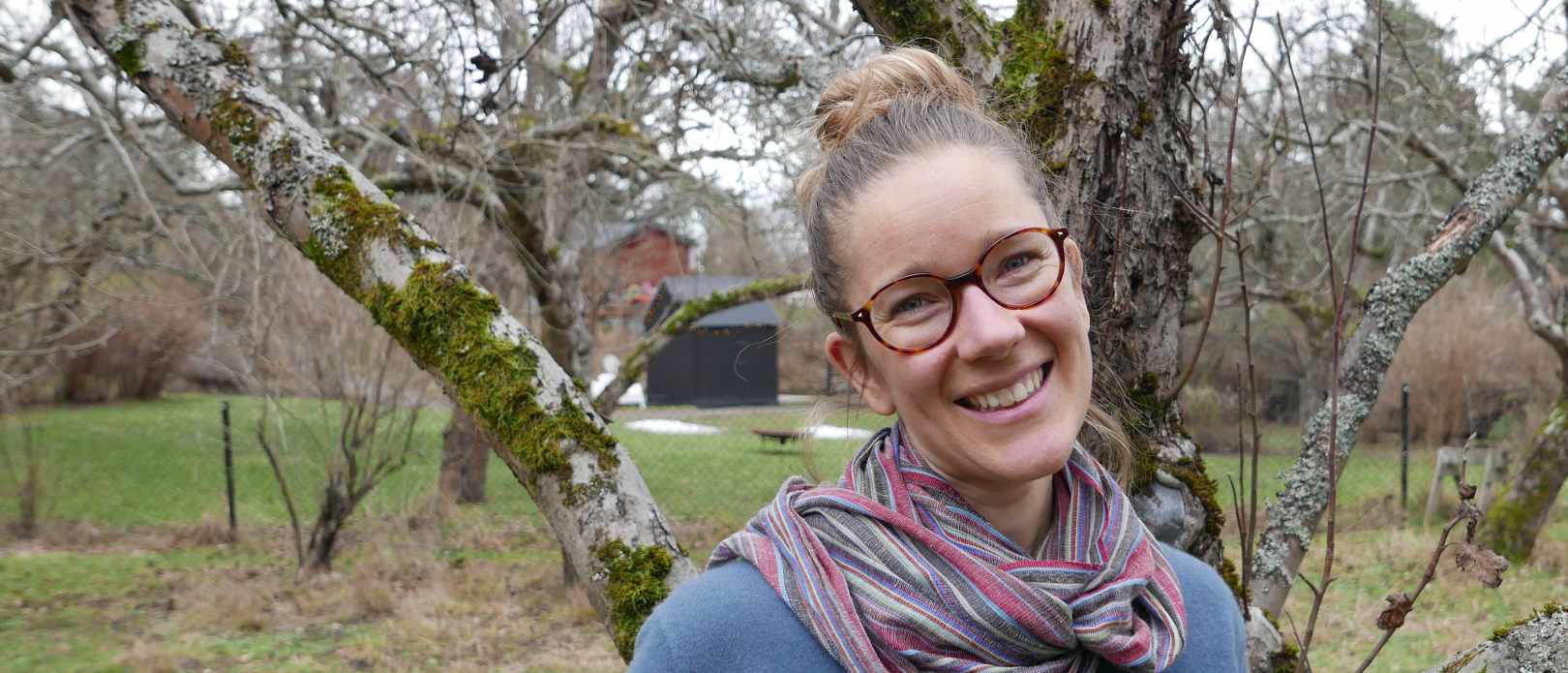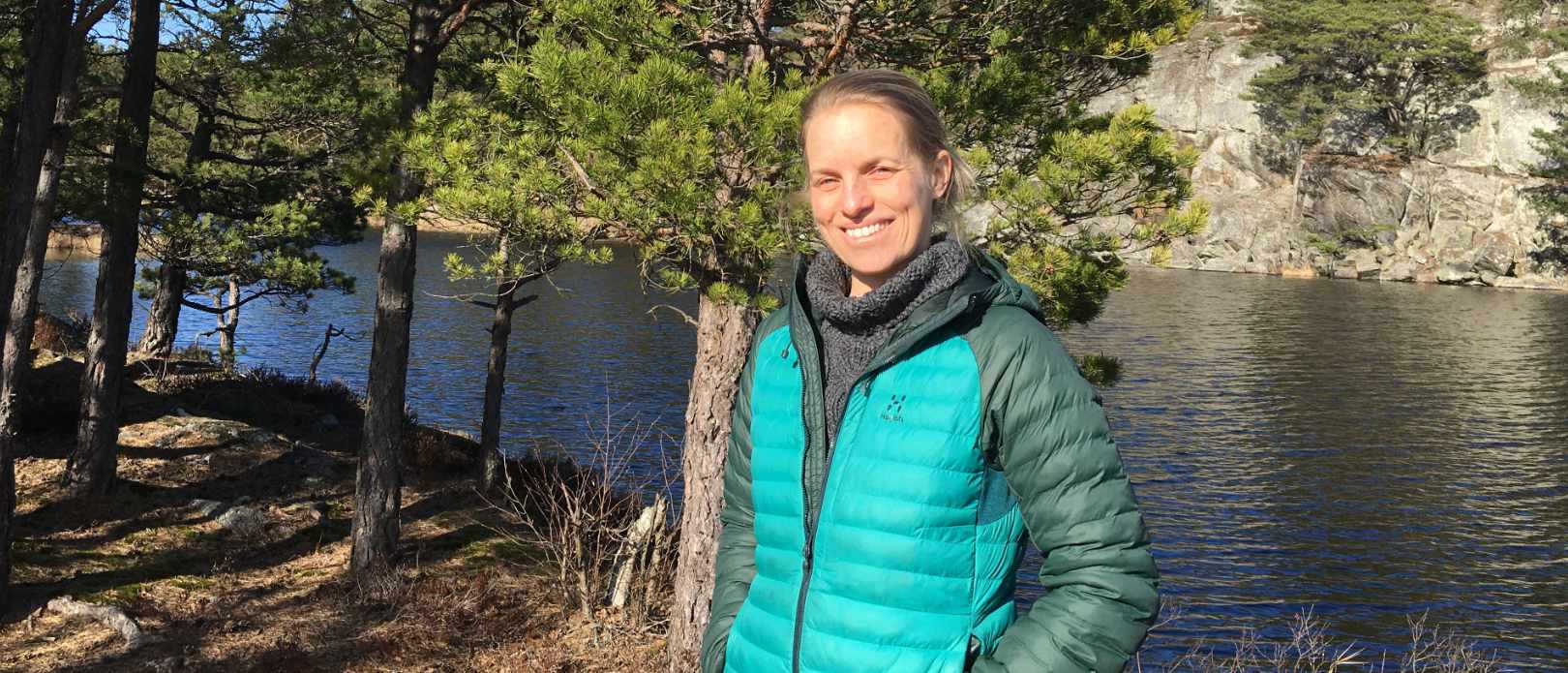RESEARCH PROFILES
Ready for anything

Cibele Queiroz is one of the theme leaders of the Development theme at the centre.
Centre theme leader Cibele Queiroz explains why diversity is important in turbulent times
- In 2020, the centre introduced new research themes to reflect a shift in the centre’s research focus
- One of the new theme leaders is Cibele Queiroz who co-leads the Development theme
- Her research focuses on food landscapes, the management of ecosystem services and biodiversity
We have entered the Anthropocene, the era where humans are now in the driver's seat of our complex world.
And with the increasingly interconnected effects of climate change, global economic crises, rising food insecurity, pandemics and violent conflicts, what does this mean for the way we do development for a prosperous and equitable future for all?
We sit down with Resilience and Sustainable Development theme leader Cibele Queiroz, who tells us about her work on building social resilience in conflict areas, how in these turbulent times we urgently need to move beyond colonial approaches to development and change the status quo, and why working with societal actors is an important way to change mindsets and put ourselves in others' shoes.
Cibele, what is the gist of your research?
I'm interested in how we can manage our food systems in ways that contribute to landscapes and livelihoods resilient to drivers such as climate change, conflict, etc. In my current work I am looking more closely into these questions in vulnerable and fragile contexts.
Specifically, I explore concrete ways of building and assessing this resilience through looking at response diversity.
What exactly is response diversity?
Response diversity can be defined as the set of multiple options available to respond to change in a given context (a species group, a local community of people, a particular society sector, etc).
If you have a disturbance like prolonged drought caused by climate change, a community can have multiple responses to this stress. If we have enough diversity of responses available, even if some actors cannot adapt, others will have responses that are more suitable allowing the system to persist or adapt to new circumstances.
Why is having a diversity of responses important?
The Anthropocene is an increasingly uncertain time. For example, right now we rely on models to predict the weather, but with climate change we expect to have higher variability and more frequent and sudden extreme weather events that will be hard to predict. This will affect everyone, but especially the most vulnerable.
I would say that in this new reality we need to leave behind approaches based on command and control and invest instead on being prepared for “the unknown”, ensuring a broad suite of options or responses.
How did you come to study this?
My interest in food systems and resilience started during my Masters studies, where I saw that the collapse of small scale agricultural systems in Portugal was leading to regime shifts with new opportunities, like rewilding for example. This made me think about how loss of resilience in one system could lead to transformation towards a new state with different characteristics and social-ecological benefits such as ecosystem services. That was when using a resilience lens to study this process appeared as an appealing approach.
After my PhD I wanted to go further and investigate ways to better empirically measure the resilience of benefits such as ecosystem services in these systems. “What features contribute to resilience in food systems in different contexts?” And this led me to response diversity.
You’re now mostly working in vulnerable regions in the Global South. How did you get there?
A few years ago I started working for Global South-focused programmes and organizations such as the Guidance for Resilience in the Anthropocene: Investments for Development (GRAID) and the Global Resilience Partnership (GRP). From here my focus shifted towards features that contribute to resilience and response diversity in vulnerable or conflict landscapes.
We work in a transdisciplinary and collaborative way with non-academic actors and organisations and with a stronger focus on social-ecological resilience.
One of the projects I am most engaged with is investigating how local initiatives in places affected by conflict can contribute to community social-ecological resilience to conflict, including building conflict-resilient food systems.
We’re interested in whether local initiatives can help these communities navigate a complex situation, and use the Seeds of Good Anthropocenes approach to explore what options there are for positive futures.
You collaborate a lot with societal actors. Why is this such a powerful way of doing research?
It's a way for all of us to change our mindsets and put ourselves in others' shoes. As a researcher I learn just as much with non-academic partners as I do with my academic colleagues, and I find trying to join both worlds and engage in co-production processes really meaningful.
The challenge is that meaningful engagements are time consuming and we have a lot of pressure to change fast and take fast decisions. Even career wise, I don't think our research system is set up for having these kinds of collaborative processes.
There is a huge pressure to publish lots of academic papers and publish fast, but these cross-sector collaborations that are necessary to achieve transformative changes in the society take time.
As one of the leaders of SRC’s Resilience and Sustainable Development theme, what are you most excited about?
Today we face totally different and unprecedented challenges. We’re really trying to explore and together understand what development means in this new era of the Anthropocene - how we can move beyond the colonial perspectives shaping development research and practice. Instead of seeing development as only for the Global South, we focus on Sustainable Development as a global challenge and recognize that a much more holistic perspective that acknowledges inequalities in the distribution of power and responsibilities is needed.
Challenges, solutions and pathways will need to be different than today. There is no “silver bullet” type of solution, no “one pathway”.
Instead we need multiple pathways, which will depend on local and regional challenges. It’s essential to recognise this diversity. There is a lot of work to do, and being part of it is really exciting.
What are some other important directions for the theme going forward?
The need for mainstreaming the recognition that human and biosphere development are totally intertwined and that we cannot have social and economic development without reconnecting to the biosphere.
The need to see development as a transformative capacity. If we want to have more sustainable, just societal development in these very turbulent times it requires the capacity of transforming and innovating, which goes far beyond adapting and persisting.
Traditional foreign aid in the Global South for example is not really changing the status quo. I’m not saying it isn’t important in acute situations, but if we want more just, sustainable societies with more equitable distribution of resources we need transformative change with long-term goals, not just making sure that people are coping with the present situation.
What are the biggest challenges of studying such complex systems?
I love that we have such a strong focus on social-ecological systems and trying to understand these complex feedback relationships, but there is a risk of getting frozen because it’s all just so complex.
It can get really frustrating and difficult to communicate complexity without falling into the trap of “inaction”. It is also challenging to be self-aware of our role as researchers in this space (researchers are also agents of change), and make sure that we are reflective and inclusive to capture a diversity of perspectives in our work.
That said, in terms of my own research, transforming food systems in ways that are more sustainable and resilient and so that everyone has access to healthy food is one of the biggest challenges of our time.
It feels good to contribute to something meaningful, even if what we do is just a little piece of the big puzzle.








